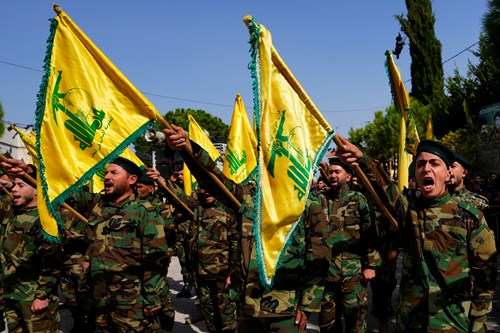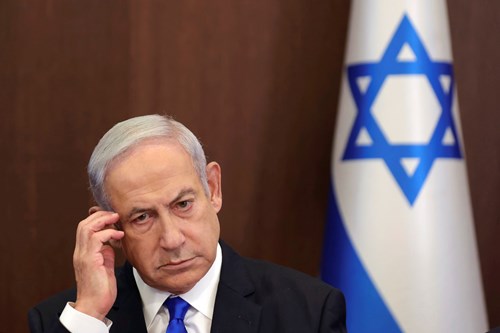Diminishing the capabilities of the enemy is common practice in military strategy before sending in ground troops.
Some of that diminishment was creative last week as exploding pagers and hand-held radios killed numerous Hezbollah fighters and injured thousands.
“People are calling it brilliant, unprecedented, the biggest Trojan horse since Troy,” Chris Mitchell, the Middle East bureau chief for CBN News, said on Washington Watch Monday.
Predictably, not everyone is celebrating the success of the pagers attack. Volker Turk, an Austrian attorney and chairman of the United Nations human rights division, criticized Israel for a potential violation of international law.

“International humanitarian law prohibits the use of booby-trap devices in the form of apparently harmless portable objects,” Turk told the Security Council during an emergency session on Lebanon requested by Algeria, The Times of Israel reported.
“It is a war crime to commit violence intended to spread terror among civilians,” he added, repeating his call for an “independent, rigorous and transparent” investigation.
Turk overlooked or ignored attacks from Hezbollah against Israeli civilians mounting in the thousands, Mitchell told show host Tony Perkins.
“Every day since Oct. 8., one day after Oct. 7, Hezbollah has fired more than 8,500 rockets, drones, UAVs, into northern Israel, and they have done that unprovoked. They were the ones who actually started this war with Israel,” he said.
Israel has not publicly accepted responsibility for the attack on pagers and hand-held radios.

In a targeted strike, Israel eliminated Ibrahim Aqeel, 61, one of Hezbollah’s most senior leaders who had survived multiple previous assassination attempts.
Aqeel was wanted by the U.S., which had placed a $7 million bounty on him, for his role in the 1983 bombing of a Marines base in Lebanon. He was said to be planning a raid on Northern Israel that would be similar in scope to the Hamas raid in Southern Israel last Oct. 7.
“Right now the leadership of Hezbollah has been decimated,” Mitchell said.
Dissension among Hezbollah rank-and-file
Apparently, that includes a loss of confidence from the Hezbollah rank-and-file for Sec. Gen. Hassan Nasrallah.
It was Nasrallah who had encouraged Hezbollah fighters, their wives and children to ditch their smart phones and replace them with pagers. Nasrallah was concerned that Hezbollah operatives were being tracked by the Israelis through the phones.
“There is confusion, they have a hard time communicating to one another,” Mitchell said.
CBN on Monday interviewed Yigal Carmon, the founder of MEMRI, Middle East Media Research Institute, which tracks Iranian, Arab and other media in the region.
 “He’s saying there’s actually internal dissension against Hassan Nasrallah. He was the one a few months ago who told them to throw away those cell phones and get the beepers. Their blaming him for what happened,” Mitchell said.
“He’s saying there’s actually internal dissension against Hassan Nasrallah. He was the one a few months ago who told them to throw away those cell phones and get the beepers. Their blaming him for what happened,” Mitchell said.
Mitchell’s sources say the Israel Defense Forces has taken out approximately 1,100 Hezbollah targets over the last three days.
It’s difficult business as Hezbollah, like Hamas in the South, hides its war-making capabilities among civilians.
“Remember what Hezbollah has been doing in the last 24 years since Israel pulled out of South Lebanon has been embedding those weapons and munitions, rockets and drones and UAV in civilian houses all over South Lebanon. That’s why the IDF is saying right now to the civilians in South Lebanon, ‘Please get out, we don’t want to harm you, we want to just target Hezbollah,’” Mitchell said.
Before they took place, Israeli Prime Minister Benjamin Netanyahu identified these attacks against Hezbollah as the “next phase” of the war.
“It seems like they’re going step by step towards an invasion,” the CBN reporter said. “They’ve had brigade exercises in the last couple of weeks. They’ve been sending tanks and armor up there.”
 Netanyahu has stated the operational goal that thousands of displaced Israelis be able to safely return to their homes in Northern Israel.
Netanyahu has stated the operational goal that thousands of displaced Israelis be able to safely return to their homes in Northern Israel.
“They’ve been saying that the last few days,” Mitchell said. “There are over 60,000 that have been refugees in their own country that would (then) be able to go back to their homes. This is exactly what the bombing campaign is all about, to have these people who have been out of their communities for more than a year return.”
Hezbollah has also been launching attacks, some of them successful and some of them deeper into the country.
Hezbollah attacks stretching deeper into Israel
Iran will likely influence Hezbollah’s long-term plans, but right now “it doesn’t seem like Hezbollah is stepping back at all,” Mitchell said. “They’re firing rockets further south into Israel, and they have the munitions, unless they’ve already been exploded by Israel, to go even further.”
Israel’s highly successful Iron Dome missile defense system can sometimes be overwhelmed by the number of projectiles approaching at one time.
One Hezbollah rocket recently landed near Nazareth, Mitchell said.
“Even though the Iron Dome shoots down maybe 90% -- it’s an amazing defensive array in Northern Israel – some have gotten through," he said. "It’s a dangerous place to be right now in Northern Israel all the way down to the Sea of Galilee.”







